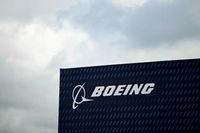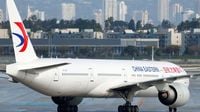China is ordering its airlines to halt further orders of Boeing jets amid a trade dispute with the United States. This significant move comes as President Donald Trump has imposed tariffs as high as 145% on various Chinese goods, prompting Beijing to respond with its own retaliatory tariffs of 125% on U.S. imports. The implications of these tariffs are profound, as they effectively double the cost of U.S.-made aircraft and parts, making purchases from Boeing increasingly impractical for Chinese airlines.
According to a report from Bloomberg published on April 15, 2025, the Chinese government has directed its airlines to stop taking deliveries of Boeing aircraft and to pause purchases of aircraft-related equipment from U.S. companies. This directive is viewed as a direct response to the escalating trade tensions between the two nations. Sources familiar with the situation indicated that existing paperwork for some orders might allow a few planes to enter China, but this would be assessed on a case-by-case basis.
The trade conflict has put Boeing in a precarious position, especially considering that China is projected to account for 20% of global aircraft demand over the next two decades. Boeing has traditionally seen China as a key growth market, and this latest setback follows a series of challenges the company has faced, including quality control issues and a crippling labor dispute that have already hindered its production capabilities.
Shares of Boeing fell by 3% in premarket trading on April 15, while its competitor Airbus saw a slight increase of 1%. Boeing's stock has already declined by at least 10% this year, reflecting the ongoing struggles the company has faced amid the trade war and safety concerns surrounding its aircraft.
In addition to the halted orders, the trade dispute has also affected Boeing's ability to fulfill existing commitments. Approximately ten Boeing 737 Max jets are reportedly preparing to enter the fleets of Chinese airlines, but some of these planes remain in limbo at Boeing's factory in Seattle or at a finishing facility in eastern China. The uncertainty surrounding these deliveries underscores the broader impact of the trade conflict on Boeing's operations.
Notably, the Chinese government has expressed intentions to support domestic airlines that lease Boeing aircraft, as they navigate the increased financial burdens imposed by the new tariffs. However, the future of Boeing's sales in China remains uncertain, especially given the historical context of trade relations between the two countries.
In a related development, Trump accused China of reneging on a "big Boeing deal," reflecting the ongoing tensions and the complexities of international trade negotiations. Analysts from Bank of America noted that Boeing's order book contained 130 aircraft due to Chinese customers at the end of March, but the actual number could be higher due to some buyers preferring anonymity.
China's aviation market is not solely reliant on Boeing; Airbus is also a significant player. However, analysts argue that Airbus cannot meet all of China's demand for large commercial jets due to capacity constraints. Furthermore, the Commercial Aircraft Corporation of China (COMAC) is heavily dependent on U.S. suppliers, and a halt in purchases could jeopardize its C919 program, which aims to compete with Boeing's 737 and Airbus's A320.
Boeing's production has already been hampered by quality issues, including an in-flight incident in January 2024 that raised safety concerns and led to factory disruptions. The company's ability to recover from these setbacks has been further complicated by the ongoing trade war, which has already seen U.S. commercial aircraft exports drop significantly in recent months.
In August 2024, U.S. commercial aircraft exports were valued at $4.2 billion, but this figure fell to $2.6 billion by September, continuing a downward trend into October and November. Although exports began to recover in December, the overall market remains fragile.
Boeing CEO Kelly Ortberg has emphasized the company's critical role in supporting 1.8 million jobs in the United States, highlighting the far-reaching implications of the trade dispute on the U.S. economy. The delivery freeze not only affects Boeing's bottom line but also has ripple effects throughout the entire aviation industry.
The situation has also prompted reactions from other airline executives. Michael O'Leary, CEO of Ryanair, indicated that his airline might postpone the delivery of 25 Boeing jets expected in August if the tariffs increase their costs. Similarly, Ed Bastian, CEO of Delta Air Lines, stated that he does not intend to pay customs duties on the Airbus aircraft expected this year, signaling a shift in purchasing strategies as companies adapt to the new economic landscape.
As the trade war continues to unfold, the aviation industry is left grappling with the consequences. The halt in Boeing orders from China not only represents a significant blow to the company but also raises questions about the future dynamics of global aviation markets. With China projected as a major player in aircraft demand, the long-term impacts of these trade tensions will be closely monitored by industry analysts and stakeholders alike.
The Civil Aviation Administration of China has yet to respond to requests for comment regarding these developments, and Boeing has declined to provide specific remarks on the situation, leaving many to speculate on the future of U.S.-China trade relations and their effects on the aviation sector.





